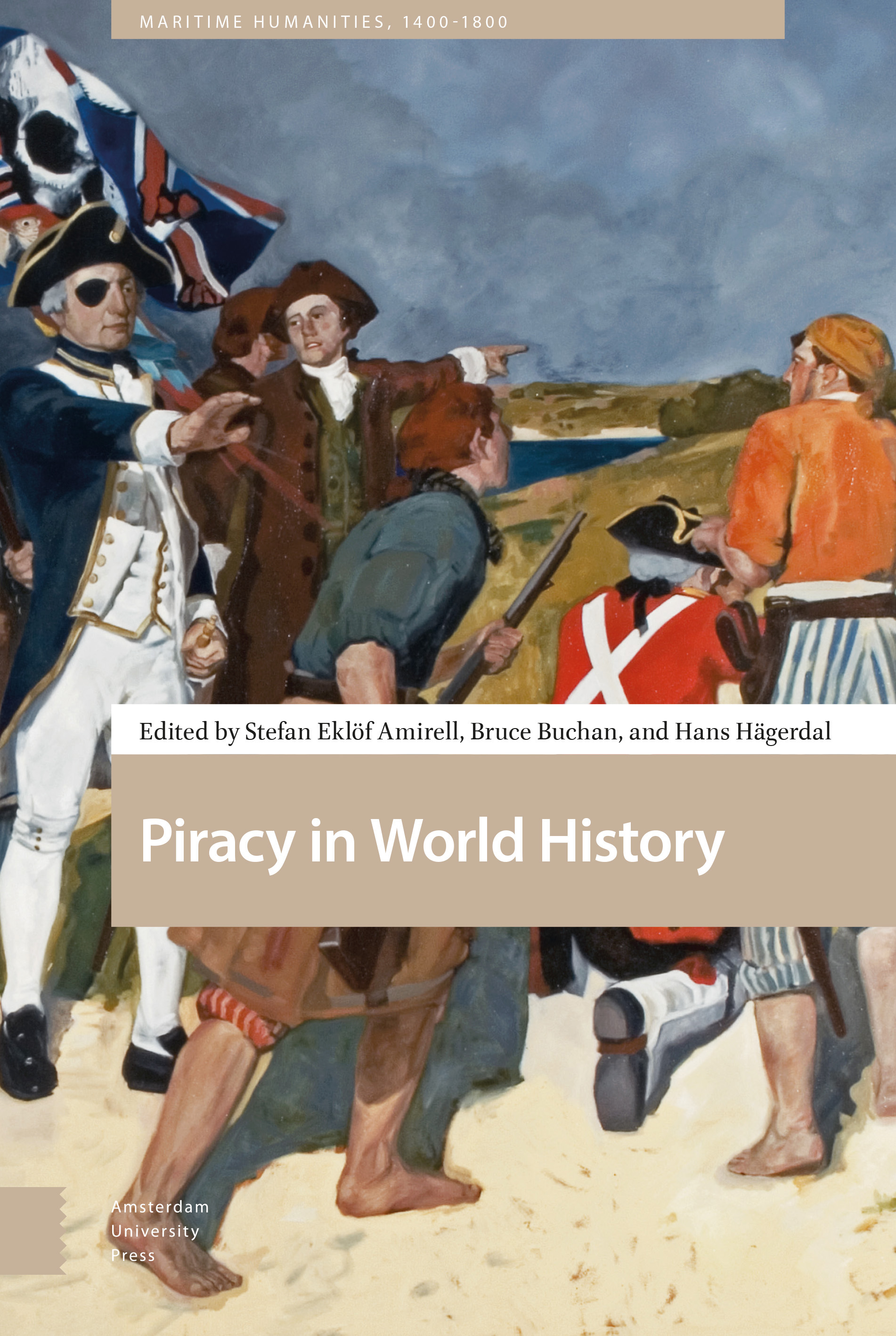Book contents
- Frontmatter
- Contents
- Acknowledgements
- 1 Introduction: Piracy in World History
- 2 “Publique Enemies to Mankind”: International Pirates as a Product of International Politics
- 3 All at Sea: Locke’s Tyrants and the Pyrates of Political Thought
- 4 The Colonial Origins of Theorizing Piracy’s Relation to Failed States
- 5 The Bugis-Makassar Seafarers: Pirates or Entrepreneurs?
- 6 Piracy in India’s Western Littoral: Reality and Representation
- 7 Holy Warriors, Rebels, and Thieves: Defining Maritime Violence in the Ottoman Mediterranean
- 8 Piracy, Empire, and Sovereignty in Late Imperial China
- 9 Persistent Piracy in Philippine Waters: Metropolitan Discourses about Chinese, Dutch, Japanese, and Moro Coastal Threats, 1570–1800
- 10 Sweden, Barbary Corsairs, and the Hostis Humani Generis: Justifying Piracy in European Political Thought
- 11 “Pirates of the Sea and the Land”: Concurrent Vietnamese and French Concepts of Piracy during the Second Half of the Nineteenth Century
- 12 Pirate Passages in Global History: Afterword
- Index
10 - Sweden, Barbary Corsairs, and the Hostis Humani Generis: Justifying Piracy in European Political Thought
Published online by Cambridge University Press: 16 December 2021
- Frontmatter
- Contents
- Acknowledgements
- 1 Introduction: Piracy in World History
- 2 “Publique Enemies to Mankind”: International Pirates as a Product of International Politics
- 3 All at Sea: Locke’s Tyrants and the Pyrates of Political Thought
- 4 The Colonial Origins of Theorizing Piracy’s Relation to Failed States
- 5 The Bugis-Makassar Seafarers: Pirates or Entrepreneurs?
- 6 Piracy in India’s Western Littoral: Reality and Representation
- 7 Holy Warriors, Rebels, and Thieves: Defining Maritime Violence in the Ottoman Mediterranean
- 8 Piracy, Empire, and Sovereignty in Late Imperial China
- 9 Persistent Piracy in Philippine Waters: Metropolitan Discourses about Chinese, Dutch, Japanese, and Moro Coastal Threats, 1570–1800
- 10 Sweden, Barbary Corsairs, and the Hostis Humani Generis: Justifying Piracy in European Political Thought
- 11 “Pirates of the Sea and the Land”: Concurrent Vietnamese and French Concepts of Piracy during the Second Half of the Nineteenth Century
- 12 Pirate Passages in Global History: Afterword
- Index
Summary
Abstract
In this chapter, the intersection of piracy with scholarly discourse and state policy is traced through a period of acute political crisis in Sweden in the early years of the eighteenth century. By focusing on one student dissertation presented at Uppsala University in 1716, it is argued here that Sweden's then precarious position necessitated a delicate navigation of piracy in both the Baltic and the Mediterranean. While the scholarly traditions of natural law provided ample resources to condemn pirates as mere sea robbers, this one dissertation illustrates how moral, philosophical, and historical arguments could be marshalled in defence of a more equivocal attitude to piracy, which also reflected the delicate balancing act performed by the Swedish state.
Keywords: Sweden, natural law, Barbary states, hostis humani generis, diplomacy
The definition of piracy has long been a matter of interest to philosophers and politicians alike. In this chapter, we consider the philosophical and political interest in piracy by focusing on a dissertation published in Uppsala, Sweden, in 1716 by Magnus Thelaus (1687–1765), entitled: Dissertatio gradualis de piratica [On Piracy]. Of Thelaus himself very little is known, beyond the fact that after taking his Master's degree he became a lecturer in oriental languages and theology at Uppsala in 1733, and eventually rose to become a Dean of the Lutheran church. In this chapter, we use Thelaus's De piratica to explore the malleable meanings of piracy in eighteenth-century Swedish philosophical and scholarly discourse against the backdrop of Sweden's dire diplomatic situation. Various chapters in this book have considered the striking concurrence that characterized European and non-European notions of piracy in the seventeenth and eighteenth centuries. This was not simply a matter of the coexistence of divergent understandings and cultural practices around the world, but, as we show here, of the entanglement of different discourses of piracy within one state. In this chapter, we reveal how a conventional scholarly articulation of the pirate as a “common enemy of all humankind” coexisted with an urgent but almost secret debate about the uses that may be made of pirates in statecraft.
The timing of De piratica in 1716 was especially significant. The early decades of the eighteenth century were a pivotal period in the extension of European state sovereignty at sea and with it, of the claims of European international law.
- Type
- Chapter
- Information
- Piracy in World History , pp. 225 - 244Publisher: Amsterdam University PressPrint publication year: 2021

